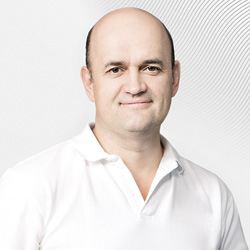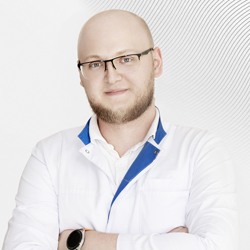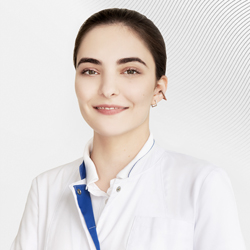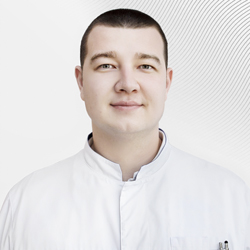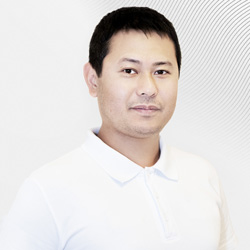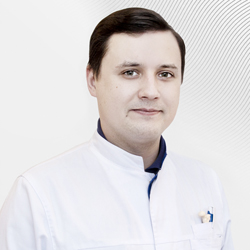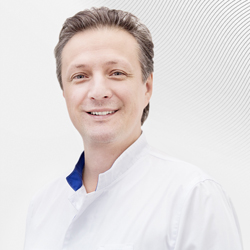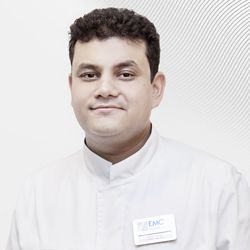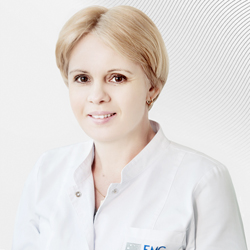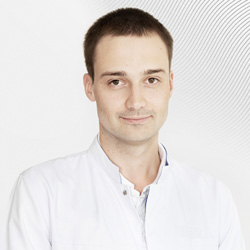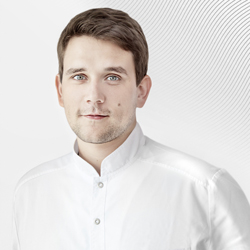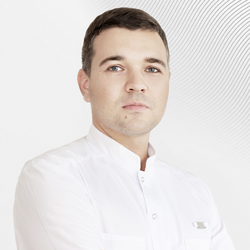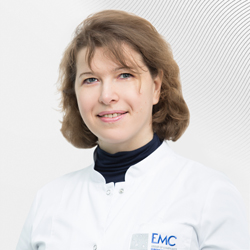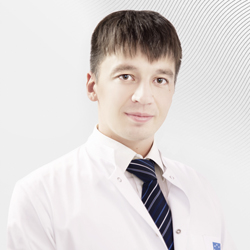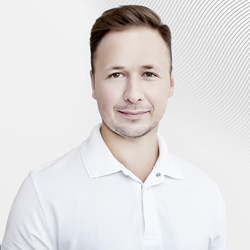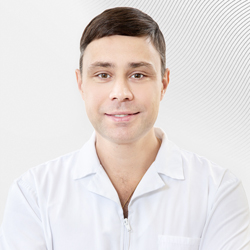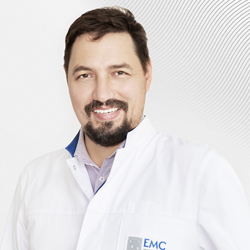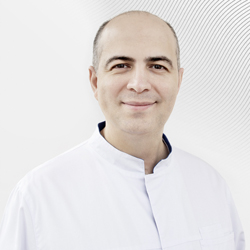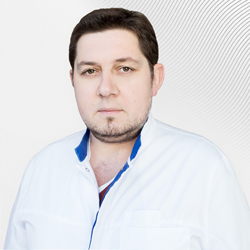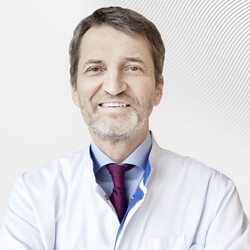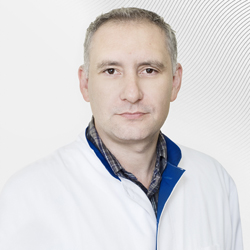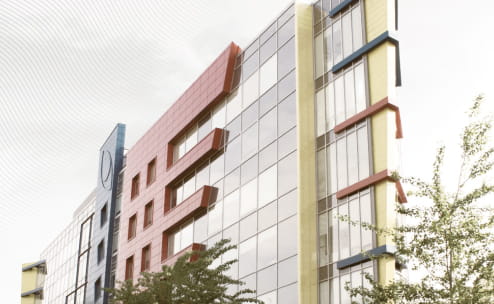 Chief Medical Officer, Medical Director of the European Clinic of Sports Traumatology and Orthopaedics (ECSTO), orthopedic surgeon-traumatologist, professor Andrey Korolev, MD, PhD, gave an interview for the April edition of Forbes magazine.
Chief Medical Officer, Medical Director of the European Clinic of Sports Traumatology and Orthopaedics (ECSTO), orthopedic surgeon-traumatologist, professor Andrey Korolev, MD, PhD, gave an interview for the April edition of Forbes magazine.
It makes sense to be the best
The most precious thing we have is life and health, and therefore we can only entrust them to the best professionals, whose knowledge and experience are obvious. Today we have the opportunity to become meet one of such professionals — Professor Andrey Korolev, the head physician of the ECSTO, orthopedic surgeon-traumatologist, doctor of medical sciences joins us today. His story — is a proof of how professionalism, loyalty, trust in one’s dream and ability not to stop before hardships can help achieve this goal and make a dream come true.
Andrey, how did your ‘medical biography’ begin? Did you want to be a doctor since you were little or did this idea come much later?
When I was I child, I have never even thought that medicine would become a part of my life: I was sure that my work would be related to space industry. And it wasn't just a boyish dream, but, as I saw it back then, a rather conscious choice: my grandfather, Sergey Pavlovich Korolev, was a prominent scientist, designer of space rocket and space technology, and I was fortunate enough to have talked to his colleagues, the first astronauts. And back then I decided that I, too, would be designing rockets and even enrolled in school specializing in physics and mathematics at the Moscow Aviattion Institute. But then I had a life-changing event: acute appendicitis, so I underwent the surgery at the academic Center for Surgery clinic, where my mother worked . In two weeks of staying there, I realized that the space was not for me, I had to become a surgeon. I have left the physics and mathematics and began to prepare for the exams to enter the I. M. Sechenov 1st Moscow Medical Institute. When I was a student, I had a feeling that wings grew behind my back — every day I was more and more convinced that I made the right choice, and that made me very happy.
How did you come to choose your specialization?
I decided to follow the example of my mother and her teacher, M. I. Perelman, one of the leading surgeons in the country — specializing in pulmonary surgery. I am very proud, and I also was fortunate to learn from him as an intern and during my postgraduate residency at the Department of Phthisiopulmonology, and assist him during surgeries: this was a very important experience for me. In addition, I followed with great interest, the news in research at the junction of different medical specialties — including thoracic*, pulmonary and cardiovascular surgery, that is, organ transplantation. I was very fortunate to participate with him in the academic program, and my first thesis, which I defended in 1990, was on the trachea transplant. Unfortunately, thoracic surgery was dying out in the 90s: it required high-quality, expensive equipment, and without the financial support of the state simply could not survive. But our specialists have had great professional experience, and M. I. Perelman supported exchanges with foreign experts. During one of the conferences I became acquainted with the leading European surgeons: professor M. Allgover, the President of the International College of Surgeons, and professors L. Schweiberer from Munich and T. Rudy from Switzerland. And I have been invited to Germany to read a course of lectures for surgeons.
What impression did the German clinics made on you?
I was greatly impressed. I was so impressed with the discipline, order, structure of their work, and responsibility for patients. When I was asked if I wanted to do an internship in Germany and Switzerland, I thought it impossible, but professor Schweiberer helped me: I got an invitation, and started working in Munich in January of 1992 under his leadership in one of the leading surgical clinics of Europe and study German at the same time (before that, I spoke English and French). In two months I was already conversing fluently with my colleagues in their mother tongue and even got a permission to work in Germany. I got my education and my academic degree confirmed; I was studying and working, so it was an amazing time, and I now remember it very fondly.
How did it happen that you decided to leave thoracic surgery?
At the beginning of my work in the clinic of professor Schweiberer, he suggested that I specialize in traumatology and orthopaedics. But then I was thinking that it would be better for me to specialize in general surgery: it would give me an opportunity to work in Moscow doing what I loved, and have a lot of patients. Moreover, in our country the orthopaedics and traumatology at that time were at a low level, unlike, for example, thoracic surgery. In Germany I saw what opportunities and what potential did the arthroscopic** surgery have — and this influenced my decision: I agreed with professor Schweiberer’s proposition.
Was this the first step that led you to think about opening your own clinic?
Yes, I was planning to open a private clinic in Russia in order to adapt the European experience in orthopaedics and traumatology to Russian realities – but the destiny ordered otherwise. Upon my return from Germany, I got a job offer from the Russian Medical Academy of Postgraduate education. I was a teaching, doing surgeries and seeing patients. In a few years I realized that I needed to go further. I soon received an offer from professor Zagorodny— he invited me to work in a new clinic, led by professor Georgy Goluhov. The hospital No 31 at that time was the best in Moscow: modern equipment, professional staff, comfortable rooms. At this hospital I became the curator of the Department of Traumatology and Orthopaedics. I already had some serious work done for my doctoral thesis, in in six months I have defended it, and obtained a PhD and a professorship. The hospital had presented me with a fantastic opportunity to develop arthroscopic and orthopaedic*** surgery. The number of patients was increasing, and I've already resorted to services of a secretary who helped me to structure a recording and reception system, schedule appointments and plan surgeries — I have observed this method of work in Germany and Switzerland. Still, I kept dreaming about opening a private clinic, which would allow me to work with maximum performance. Back then I started to cooperate with the European Medical Center (EMC).
Why the European Medical Center?
Here I have found the logic in the organization of work, which I missed in conventional hospitals forced to operate under the city healthcare laws, adopted back in the Soviet times. The EMC was always ready to take any number of patients at any time — not only on weekdays, but on weekends as well. Nobody ever said, ‘Doctor, you are operating outside of your schedule!’ — They always gave me the ‘green light’. But still, I have not abandoned the idea of a private clinic. I have invited a financial adviser, with whom we developed a business model, and continued to work: doing surgeries, and advising — I wanted to help people... Then EMC changed ownership — the business was bought by two of my friends, the owners of the 36.6 Group of companies, Artyom Bektemirov and Sergei Krivosheev. They offered me to ‘implant’ my own future clinic into the EMC clinical structure — and I accepted this offer gladly. So my European Clinic of Sports Traumatology and Orthopaedics (ECSTO) became a part of the EMC. Today's EMC owners — Igor Shilov, Leonid Shayman and Csaba Baljer — are people who were very willing and able to build the best private clinic in Russia; and the money is not the main thing for them, which is entirely consistent with my view of life. I would like to say that I could have never been able to create such a clinic, if it were not for the people who believed in this idea and worked in good faith and stood by me. Some came here as young specialists, others, as mature professionals, but what we all have in common is that we really love and know our job, respect our patients and sincerely want to help them.
*Thoracic (chest) surgery is a branch of surgery dealing with the organs located in the chest area, and organs adjacent to it. These are: larynx, pharynx, esophagus, trachea, lungs, thymus gland (thymus), thyroid and parathyroid glands, diaphragm, liver, stomach, heart, pericardium, and major blood and lymphatic vessels.
**Arthroscopic surgery is a type of surgical procedures in which the arthroscop and other surgical instruments are introduced through a minimal incision, for the detection and treatment of various diseases and injuries of joints.
***The orthopaedic surgery (orthopaedics) is a branch of surgery which deals with surgical treatment of fractures, injuries and diseases of the spine, bones, muscles, tendons and joints.

7, Orlovsky pereulok, Moscow, 129090
Interview with the Chief Medical Officer, medical director of ECSTO, Andrey Korolev to Forbes magazine
09 November 2015
The information has been verified by an expert
.jpg)
Королев Андрей
д.м.н., Профессор
Хирург, Травматолог-ортопед
Was this information helpful?
7, Orlovsky pereulok, Moscow, 129090
Doctors and staff
 Write to WhatsApp
Write to WhatsApp